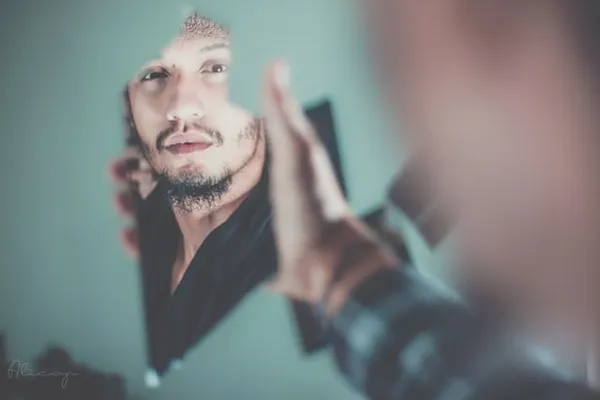What exactly is therapy?
This blog post is associated with episode seven of the podcast with Cam Wharram, RCC about therapy.
Therapy (noun): treatment intended to relieve or heal a disorder.
Sitting on a couch crying with a box of tissues across from a person who is looking at a clock waiting to tell you time is up is how we often pictured therapy to be. This is no surprise because movies and TV shows often depict therapy as someone you bawl your eyes out and vent to. Therapy is so much more than that.
Psychotherapy, therapy, or counselling, is a process or form of treatment where an individual meets with a therapist to explore the things happening in their lives. This could be about past trauma, life transitions, behaviours that need to be changed, or relationships. Numerous topics are discussed throughout therapy and the goal is to help you feel supported and to make changes healthily.
One of my favourite analogies is that mental health is a muscle. It needs to be developed and trained to get stronger and more durable. You can’t expect to lift heavy weights right away without some form of training and that’s the same with mental health. We go through a variety of situations throughout our lives that teach us how to react, respond, and cope, whilst building on that mental health muscle.
Like working out, progress looks different for everyone and some may find it helpful to have a personal trainer to guide them. That’s the same with therapy. If you’re expected to have regular check-ins with your family physician and dentist, why isn’t it the same with your mental health? It’s much more difficult to deal with a root canal or major cavity compared to getting regular cleanings and check-ups. One of the biggest misconceptions about therapy is that you only need to go if you’re extremely depressed, suicidal, or rock bottom. It’s much harder to create change when you’re at that stage as preventative care or proactive care is the best form of care you can give to yourself.

Some common questions about therapy:
What’s the difference between a psychologist, counsellor, psychiatrist, coach, and therapist?
A therapist (or psychotherapist) and counsellor are technically the same things. In Canada, all therapists must have at least a Master’s level of education in psychology and are typically part of a regulatory body. For example, in British Columbia, therapists are RCC (registered clinical counsellors) and have to apply for this designation. It is important to ensure your therapist has credentials as there are some programs for “Counselling Therapists” but it’s a 10-month diploma.
Psychiatrists are medical doctors who can diagnose and prescribe medication to treat mental health conditions. Psychologists have a PhD who can diagnose conditions but cannot prescribe medication and focus more on therapy and research.
Coaches support individuals in achieving goals and do not require additional certification, designation, or education to practice.
When should I go to therapy?
It can be nerve-wracking to begin or even consider therapy because of the negative stigma surrounding it. It might make you seem weak or that you have something going on and you don’t want people to know. When people ask me this question, I’ll typically whip out my analogy about mental health as a muscle and to strengthen and develop it, we need to train it over time. Some might want guidance from a personal trainer or dietitian and need to create plans for self-care and training. Similarly, with mental health, seeing a therapist is a way to gain new insights and perspectives on situations in your life.
Just like how there are different types of exercise like going to a spin class, yoga, weightlifting, or sports, there are many interventions in therapy that could be effective and helpful for you. Many therapists will also have a free consultation for you to connect with them and see if they are a fit for you. If you are curious to get started, you can try to search “clinical counsellors” or “licensed counsellors” near you. Remember to check their credentials before contacting them!
Should I see someone with who I can identify better in terms of culture or gender?
This is entirely up to you! You may feel that you connect with someone who has the same ethnic background because they’ll “get” it more or you may want to speak with someone who has a completely different outlook and life experiences. The beauty of therapy is that you are not committed to one therapist for a long time - it’s okay to switch to another therapist if the fit isn’t right!

How can I encourage a friend to seek out therapy without sounding judgemental?
This is a tough one - I applaud you for supporting your friend and I know it’s not always easy to talk about sensitive and personal topics. I grew up learning that we should treat others the way we want to be treated but over the years, I have shifted to “treat others the way they want to be treated.”
When approaching a loved one or friend about therapy, I encourage you to come from a place of support and empathy. This means being mindful of your tone and the environment you’re having this conversation in. You could also share that you are learning more about the importance of mental health and have researched more on what therapy is. If you go to therapy and you’re feeling comfortable about sharing that, it could be a way to break down barriers or the negative stigma.
Is virtual therapy less effective than in-person therapy?
This was a major concern for many individuals when therapy was switched to a virtual format because of the pandemic. However, research shows that online treatment is just as effective compared to in-person care because the strategies and interventions used can be shared and taught regardless of the venue. It also makes therapy more accessible and easier to schedule as individuals can be appointments at the comfort of their own home.
We are often told to care about our physical health but it’s also important to develop our mental health because it affects many aspects of our lives. As a first step, I encourage you to take a sheet of paper and complete a mental health inventory and what you might need support with.
We all deserve to be supported!
